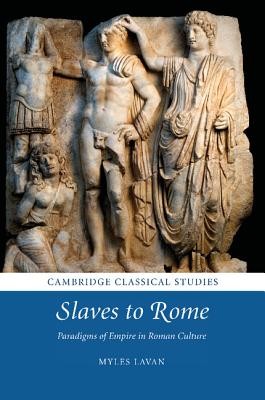
- We will send in 10–14 business days.
- Author: Myles Lavan
- Publisher: Cambridge University Press
- ISBN-10: 1107674441
- ISBN-13: 9781107674448
- Format: 15.2 x 22.9 x 1.6 cm, softcover
- Language: English
- SAVE -10% with code: EXTRA
Reviews
Description
This study in the language of Roman imperialism provides a provocative new perspective on the Roman imperial project. It highlights the prominence of the language of mastery and slavery in Roman descriptions of the conquest and subjection of the provinces. More broadly, it explores how Roman writers turn to paradigmatic modes of dependency familiar from everyday life - not just slavery but also clientage and childhood - in order to describe their authority over, and responsibilities to, the subject population of the provinces. It traces the relative importance of these different models for the imperial project across almost three centuries of Latin literature, from the middle of the first century BCE to the beginning of the third century CE.
EXTRA 10 % discount with code: EXTRA
The promotion ends in 19d.18:05:10
The discount code is valid when purchasing from 10 €. Discounts do not stack.
- Author: Myles Lavan
- Publisher: Cambridge University Press
- ISBN-10: 1107674441
- ISBN-13: 9781107674448
- Format: 15.2 x 22.9 x 1.6 cm, softcover
- Language: English English
This study in the language of Roman imperialism provides a provocative new perspective on the Roman imperial project. It highlights the prominence of the language of mastery and slavery in Roman descriptions of the conquest and subjection of the provinces. More broadly, it explores how Roman writers turn to paradigmatic modes of dependency familiar from everyday life - not just slavery but also clientage and childhood - in order to describe their authority over, and responsibilities to, the subject population of the provinces. It traces the relative importance of these different models for the imperial project across almost three centuries of Latin literature, from the middle of the first century BCE to the beginning of the third century CE.


Reviews